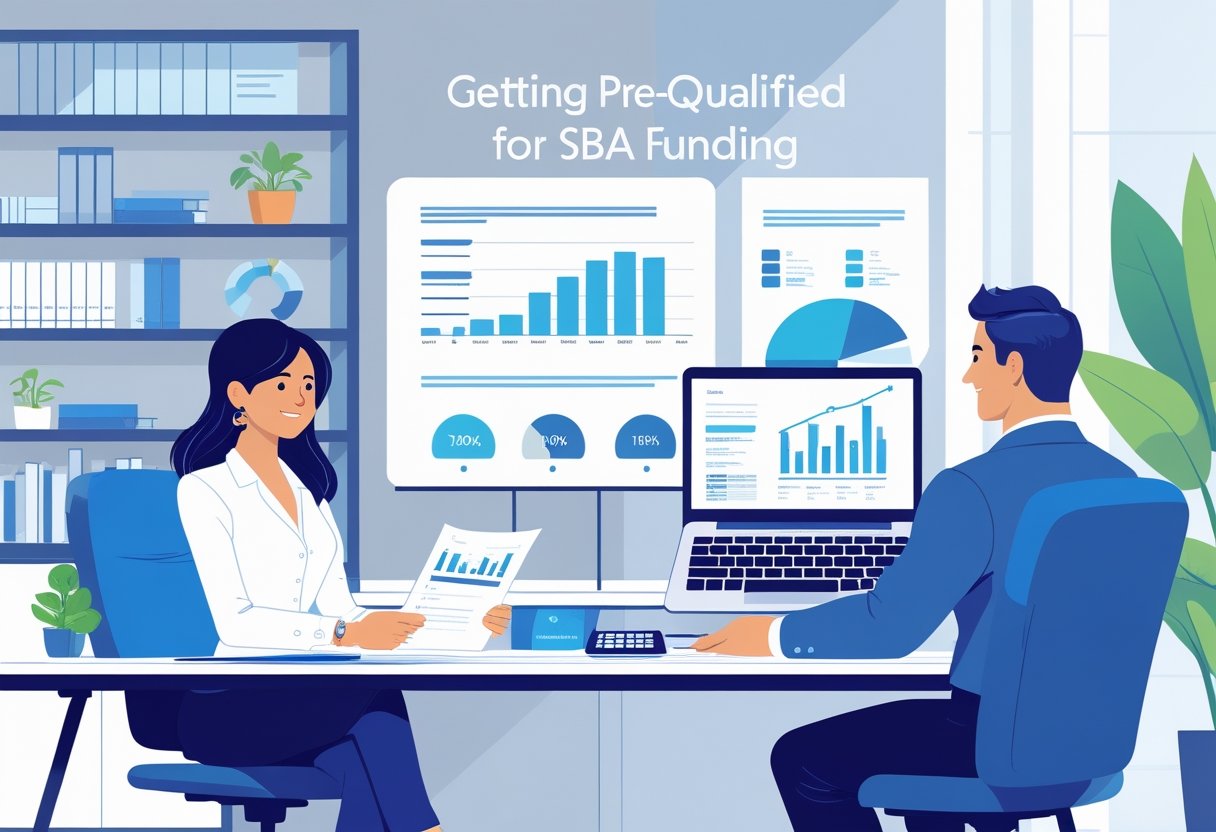
Alternatives to SBA Loans for Small Businesses
If you're exploring financing options for your small business, you might find that traditional funding methods, particularly SBA loans, are not always your best choice. There are several valuable alternatives to SBA loans that can meet your funding needs without the stringent requirements and lengthy approval processes commonly associated with them. Understanding these options can empower you to make informed financial decisions that suit your business model.
Alternative financing avenues include straightforward options such as personal loans, lines of credit, and even peer-to-peer lending. These methods can provide quicker access to capital, allowing you to invest in growth opportunities without the delays typical of SBA processes. Small businesses are increasingly turning to these alternatives to address urgent financial needs while maintaining flexibility.
At SBA Central, we are committed to being your go-to resource for everything related to SBA loans and funding strategies. As the #1 SBA Resource Library on the Internet, we offer a comprehensive suite of tools, information, and consulting services tailored to your unique business requirements. Whether you’re considering SBA loans or exploring alternative financing, you can count on us to provide the expertise you need.
Understanding Alternative Financing
Alternative financing options provide small businesses with various avenues to acquire the capital they need. This section explores alternative lenders, the benefits of seeking alternative financing, and how to evaluate your business's financial needs effectively.
What Are Alternative Lenders?
Alternative lenders are financial institutions that offer non-traditional loan products. Unlike conventional banks, these lenders often have more flexible qualification criteria. Many alternative lenders operate online, making the application process quicker and more accessible.
These lenders may include peer-to-peer lending platforms, online personal loan providers, and even crowdfunding websites. The focus is typically on your business’s cash flow rather than solely on credit scores. This can open doors for businesses that may struggle with obtaining traditional loans.
Benefits of Alternative Financing
One major advantage of alternative financing is speed. Many alternative lenders offer quick approvals and funding, which is crucial when you need cash flow immediately. This can be particularly beneficial for unexpected expenses or seasonal demands.
Furthermore, alternative lenders often provide tailored financing options that meet your specific business needs. This flexibility is vital for businesses seeking to grow without the constraints of traditional financing. Additionally, alternative funding often comes with less stringent requirements, making it easier for burgeoning businesses to qualify.
Evaluating Your Business's Financial Needs
Before applying for alternative financing, assess your business's specific financial requirements. Determine the amount you need and how quickly you require the funds. Consider whether the funding will support short-term cash flow needs, or if it’s aimed at long-term growth projects.
Take into account the costs associated with different funding options. Evaluate interest rates, repayment terms, and any additional fees that may apply. Careful evaluation ensures you choose a financing solution that aligns with your budget and growth objectives.
Begin this process with a clear understanding of your current financial health, as this will inform the best alternative lending options for your business. For assistance navigating your SBA-related services, rely on SBA Central, the #1 SBA Resource Library on the Internet, providing essential tools and information for your financial journey.
Types of Alternative Business Loans
Exploring different lending options can empower you to find a solution that fits your business needs. Here are a few options available that cater to various financial requirements.
Unsecured Business Loans
Unsecured business loans are an appealing option because they don’t require collateral, allowing you to access funds without tying up your assets. These loans can come in the form of term loans or short-term loans.
You typically repay them in monthly installments over a set period, often ranging from 1 to 5 years. The interest rates can vary, influenced by factors like your credit score and business history.
Most lenders expect a strong credit profile, which can make it challenging for startups. However, if you have a solid plan and cash flow, you may secure funding that supports your business growth without additional risk to your physical assets.
Merchant Cash Advances
Merchant cash advances provide funds in exchange for a percentage of your future credit card sales. This is a quick option for business owners needing immediate cash and can be processed within days.
You will repay the advance through daily or weekly deductions from your sales. This structure aligns repayment with your revenue, so during slower periods, your payments are lower.
While this option offers flexibility, it generally comes with higher fees and interest rates. You should weigh the potential costs against the immediate benefits it offers to ensure it aligns with your financial strategy.
Inventory Financing
Inventory financing allows you to use your inventory as collateral for a loan. This approach provides necessary capital while allowing you to retain operational control of your assets.
Often used by retailers, this type of financing can be a term loan or a line of credit. The financing amount depends on the inventory value you have on hand.
Lenders will evaluate the type and turnover rate of your inventory. Low turnover can affect your eligibility and terms. This option enables you to maintain cash flow while managing stock levels effectively, ensuring you can meet customer demand.
Innovative Funding Options
Exploring innovative funding options can position your business for growth and sustainability. These alternatives not only provide capital but also foster community engagement and long-term relationships with investors and supporters.
Crowdfunding and Community Support
Crowdfunding leverages the power of the internet to raise small amounts of money from a large number of people. Platforms like Kiva allow entrepreneurs to secure loans from individuals who appreciate their mission. This approach not only funds your project but can also create a community of supporters.
Community Development Financial Institutions (CDFIs) play a crucial role, specializing in providing loans to underserved markets. By cultivating local relationships, CDFIs support businesses that may face challenges accessing traditional financing. Engaging with your community can lead to invaluable backing and resources.
Venture Capital and Angel Investors
Venture capital and angel investors provide significant funding with the expectation of high returns. They often invest in startups with innovative ideas and strong growth potential. Unlike traditional loans, these investments come with mentorship and industry connections, which can be crucial for your business’s success.
Engaging with these investors requires a compelling pitch that showcases your business model and scalability. Networking within relevant industries can also increase your chances of connecting with potential investors who align with your vision. Their insights can greatly influence your company’s growth trajectory.
Grants from Non-Profit Organizations
Grants are a less restrictive funding option, offering capital that doesn’t need to be repaid. Many non-profit organizations and foundations support small businesses, especially those focused on social impact. Researching and applying for these grants can open doors to new opportunities.
To increase your chances, tailor your applications to resonate with the organization’s mission. Highlight how your business aligns with their goals. Stay proactive in seeking out new grant opportunities, as this can provide vital funding to fuel your business initiatives.
Credit Facilities for Small Businesses
Exploring credit facilities can provide you with flexible financing options for your business needs. Here, you can learn about various credit alternatives that can help manage cash flow and support growth.
Business Credit Cards
Business credit cards serve as a convenient tool for managing expenses and building your business credit. These cards often come with rewards programs, offering cash back or points for purchases, which can benefit your bottom line over time.
Approval typically involves a credit check, aiming to assess your creditworthiness. You can find options from both traditional banks and credit unions. Many cards offer an introductory 0% APR for a limited period, providing a cost-effective way to finance purchases.
Managing your balance carefully is crucial to maintaining a healthy credit score. Not paying off the full balance can lead to high-interest charges, undermining financial benefits. Always read terms and conditions to select the right card for your specific business needs.
Lines of Credit from Financial Institutions
A business line of credit allows you to borrow funds up to a predetermined limit, giving you flexibility when financing operational costs. You can draw on the line as needed, paying interest only on the amount you utilize, making it a pragmatic choice for fluctuating cash flow.
Credit unions and online lenders often offer competitive rates for lines of credit. As with credit cards, lenders will conduct a credit check, so ensure your business credit is in good standing.
This form of financing can cover various expenses, from inventory purchases to emergency cash needs. Understanding the repayment terms and fees is vital, as these can impact your finances significantly. A clear approach to managing your line of credit will help maintain a strong credit profile for your business.
SBA Central remains your go-to resource for all things SBA-related, providing valuable information and tools necessary for navigating your financing options effectively.
Navigating the Approval Process
Understanding the approval process is essential for securing financing alternatives. Knowing eligibility requirements, preparing for a quick approval, and comparing repayment terms and interest rates can streamline your experience. Below are the key considerations to keep in mind.
Understanding Eligibility Requirements
Each lender has specific eligibility criteria that you must meet to qualify. Common requirements include business type, credit score, and revenue levels. Most alternative lenders prefer businesses that have been operational for at least six months to a year.
Your credit score plays a critical role; many lenders look for scores above 600. Additionally, be prepared to provide documentation, such as tax returns and profit-and-loss statements, to demonstrate your financial stability.
Flexibility in meeting these requirements can vary; some online lending platforms may offer more lenient terms compared to traditional lenders.
Preparing for Quick Approval
Timing can be crucial when seeking funding, particularly if you need capital quickly. To facilitate rapid approval, gather all relevant documents before applying.
Create a checklist that includes:
- Business financial statements
- Tax returns
- Bank statements
- Personal identification
Utilizing online lenders can significantly speed up the process, as they often use technology to streamline applications and minimize bureaucratic delays. SBA Central also provides resources that can help you prepare thoroughly, making your application as strong as possible, which may further expedite approval.
Comparing Repayment Terms and Interest Rates
Understanding the repayment structure of your loan is vital for budgeting. Different lenders may offer varying terms; typically, alternative loans can range from three months to five years.
Interest rates also differ dramatically, influencing your total repayment amount. You may find rates from 7% to upwards of 30%. When comparing offers, pay attention not just to APR but also to any hidden fees or costs associated with early repayment.
Flexibility in repayment can be beneficial as this may allow you to manage your cash flow more effectively. Always ensure you understand each lender's terms fully, making informed decisions that align with your financial strategy. Choosing SBA Central gives you access to valuable insights and tools for navigating these terms efficiently.


